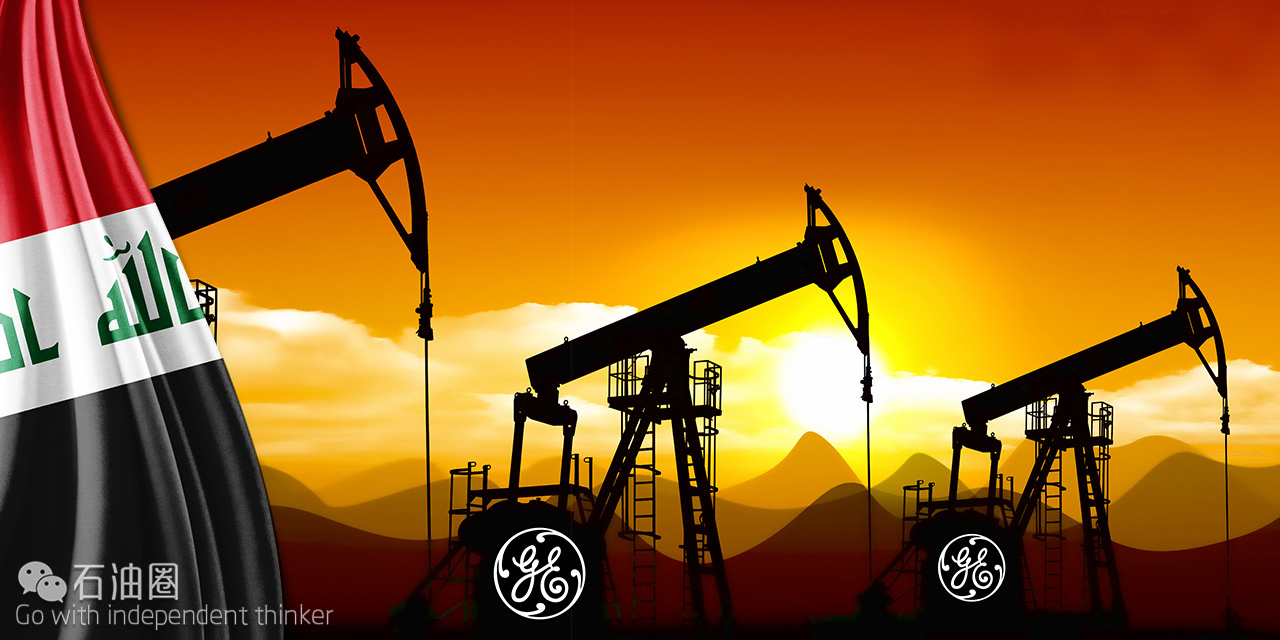GE Oil & Gas and Iraq’s Ministry of Oil have signed a wide ranging strategic plan that takes its partnership to the next level, according to Rami Qasem, president & CEO of GE Oil & Gas Middle East, North Africa and Turkey who spoke exclusively to Pipeline.
The strategic partnership agreement was signed in Baghdad with the Iraqi Ministry of Oil and aims to strengthen the performance of Iraq’s energy sector by moving it towards full digitisation.
During the signing, Rami Qasem noted that the Ministry of Oil and all its various entities were represented in one room, sharing their support of the agreement.
“We were honoured that this strategic agreement commanded such united support from the Ministry of Oil, its subsidiaries and a range of other stakeholders, and we are now committed to delivering on this deal for the good of the country,” he said. “What we have agreed with the Ministry and all of its subsidiaries, including joint ventures, is to employ our digital capabilities to help bring about a much smoother, faster and more efficient operational environment,” Qasem said.
He added: “The Ministry wants GE to address its operational needs -whether this is for services or parts– to help enhance the efficiency of its fleet and also integrate our market-leading digital technologies into the heart of its oil and gas sector.”
Under the deal, GE Oil & Gas will support the performance of the Iraqi Ministry of Oil’s fleet by setting up the country’s first Monitoring & Diagnostics Centre that will enable real-time predictive maintenance, reduced downtime and improved operational efficiency of that fleet. As part of the framework agreement, GE Oil & Gas will also partner on an end-to-end solution to reduce gas flaring in Iraq’s oil fields and use this gas for power generation.
Qasem explained: “The deal will enable the Ministry to leverage GE’s knowledge and expertise to help reduce gas flaring at Iraq’s oilfields. It will also allow them to leverage some of the latest technology to enhance production from existing wells that could lead to a saving of 200 Megawatts per site and recovery of several thousand barrels per day of liquefied petroleum gas,” he said.
The deal also includes a first-of-its-kind financing partnership with Iraq’s Ministry of Finance to support delivery of strategic projects by helping to develop financing structures for its projects by tapping into GE’s international knowledge and expertise in supporting major oil and gas projects around the world. Qasem believes that this “crucial agreement” is extremely important to Iraq as the breadth of the agreement will bring benefits that support the country’s economy and the people of Iraq by enhancing skills within the energy sector.
Importance of Iraq
The new GE-Iraq strategic deal further strengthens the oil service firm’s long-term partnerships with the Ministry of Oil and with the country and builds on GE’s long history of working in Iraq.
“GE has been working with Iraq’s Ministry of Oil for more than 45 years. We have over 50 per cent of the current installed base of equipment, whether it is rotating machinery, pumps or controls. It is essential for us with the trust we have built-up over many years that we take the relationship to the next level of partnership by ensuring the Ministry’s fleet is optimised and running as efficiently as possible,” he said.
Qasem added: “Iraq has always been an important oil and gas market for us as a company and we have a great relationship with the country, but it is also vital for the whole oil and gas market as it is a big producing nation and strategically important. It is our job to continue partnering with Iraq’s oil industry and helping it meet all of its needs.” At a time when the oil and gas market is going through challenging times, Qasem believes it is up to partners to really step up and do anything they can to support the industry. “We are bringing all our expertise to Iraq, including offering the right technology and financing advice, and enabling a big digital push that will connect all of their remote sites to a centralised monitoring system.”
Cutting costs
The current low oil price environment is affecting the industry as a whole and Iraq is certainly feeling the pinch. The new GE deal will help the Ministry of Oil reduce costs at a crucial time.
“Everyone in the industry is talking about cutting costs but it is a big challenge because there are so many different facets to it. One mechanism we are working on with Iraq’s Ministry of Oil, which will allow it to reduce day-to-day running costs, involves enhancing the operational efficiency of all of its assets, irrespective of whether they are part of a joint venture or if they are based in the north or south of the country. By looking at all of the Ministry’s operations and determining how they are performing relative to one another, we can establish where improvements need to be made and optimise production in the fastest and most-efficient way possible using our digital capabilities.”
He added: “The other fundamental element, with cost cutting taking place, is to ensure that spending, when it comes to people and training, is not and must not be affected.” As part of the agreement GE Oil & Gas will work hard to build on its existing local capabilities with a continued focus on localisation to create additional jobs for Iraqis and extend advanced technical training.
“We are currently building a training centre in Basra and we are also planning to build a training centre in Baghdad. We are moving trained instructors to Iraq as we want to be a partner that trains thousands of different Ministry employees at an operational, maintenance and management level. We want to make sure we keep investing in developing Iraqi talent.”
Digital push
In addition to scaling-up the efficiency and productivity of the existing assets of the Ministry, the agreement also marks the first application of GE’s digital solutions in the country.
“The digital angle is critical and we were pleased that the senior leadership who are driving this agreement were particularly excited about the push for a digital era in Iraq and in fact, have challenged us to pick a few installed plants and ensure that they are connected to be ready for the summer of 2017.”
GE will establish a 24/7 centre that will take Big Data from sensors embedded in the Ministry’s equipment and with software analytics will offer web-based solutions that enable predictive maintenance, reduced downtime and overall improved operational efficiency.


 石油圈
石油圈
